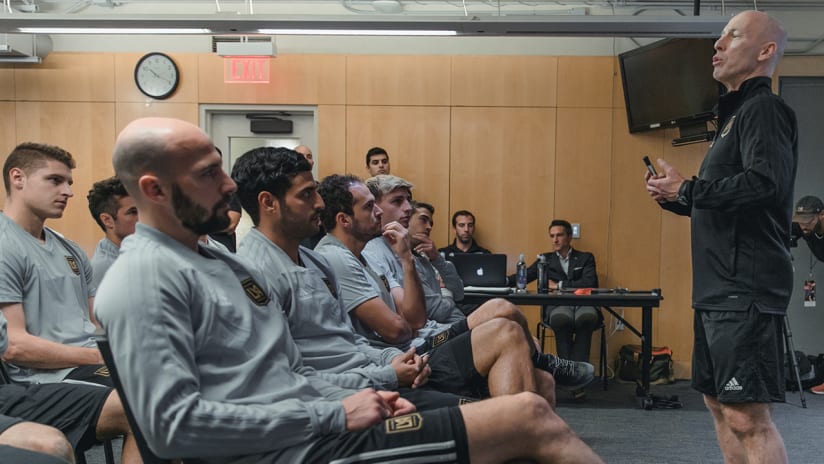“If your goal is simply to make the playoffs or something like that, then that’s not exactly what I’m looking for. There’s this idea that ‘here’s how the game should be played.’ What does that mean? Somewhere in there there’s a soul of certain clubs and there’s a culture and there’s an identity. We show up here every day and we have a chance to be different.”
– Bob Bradley
Read any business or sports book, and they talk about finding the Why. The Why drives everything else. Why is everyone really here? Why are we doing what we’re doing? What value are we adding to the world? If you work in an office, I suspect you know what I’m talking about. Superficial Whys crack under scrutiny; legitimate Whys provide a foundation.
I played for six professional teams; none of them provided a Why. Yes, we wanted to win. Yes, we wanted to earn our next contracts. But, believe it or not (like it or not), the motivation on those goals wanes. Throughout a 30-plus game season, the energy deteriorates. It’s difficult to get focused for every training session. Athletes, like anyone else, need a strong purpose.
After watching the new ESPN+ documentary about Los Angeles Football Club’s inaugural season, We Are LAFC, it’s clear that Bob Bradley understands the value of the Why.
Bradley sets a superbly high bar for everyone, at one point asking Carlos Vela to push himself to match Lionel Messi: ”Every day I can say to you, I want you to be as good as Messi. Maybe I’m crazy, but it’s part of my deal I have with [Vela].” But it’s not just about raising the bar on the players in the club. It seems to be about raising the bar on the league and the sport.
The players and coaching staff and executives don’t appear intent on merely winning games. They give off the impression that they are there to change history, to change the way the game is played, to raise the level of the game.
In the first episode of the series, Bradley uses a line that he alludes to through the entire show: “We try every day to turn something into football that’s different.” Football that’s different. It’s clear in every episode, in every scene almost, that LAFC’s players aren’t just trying to win games. They have a higher purpose – to play football that’s different.
Other teams can win games, other teams have won championships. How many teams have played football that’s different?
Pretentious, perhaps. It’s audacious to suggest you can do something that’s unique, that hasn’t been done before. But progress doesn’t happen without those people. And who’s going to suggest American soccer can’t progress?
What does different mean? In footage from the practice field or the meeting room, Bradley mentions quick transitions, movement between the midfielders and fluidity among the attackers as key tenants – nothing revolutionary. He rarely reveals details of the secret sauce. The show keeps it big-picture, and the big picture is very clear.
Before a game in the middle of the season, Bradley called his team together in the locker room. “Look at me,” he told them. He didn’t follow up with a demand for a win or a goal of three points. “We have something special,” he said. “Make our football count.”
If I were an opposing fan of LAFC, I would scoff at such a notion. As a neutral and a former player, it gave me chills. Tangible goals – winning, points, trophies – only hold so much meaning.
Doing something different. Providing people with more than points on a board. Changing the future. Isn’t that what we’re all looking for?
Bob Bradley might not achieve his quest. But he’s definitely on one. A bold one, about more than a trophy. And that alone separates him for the crowd.












